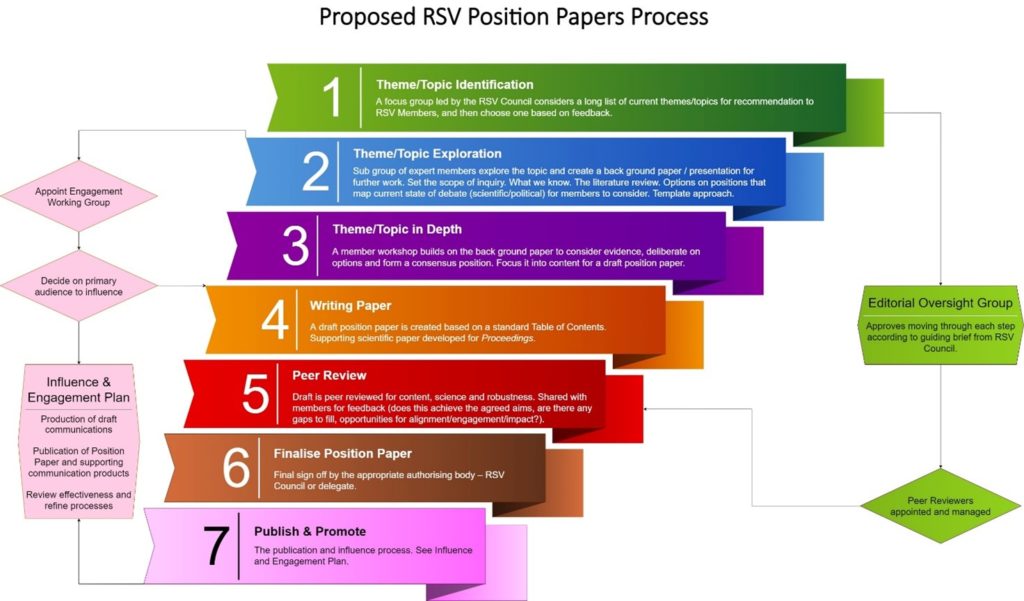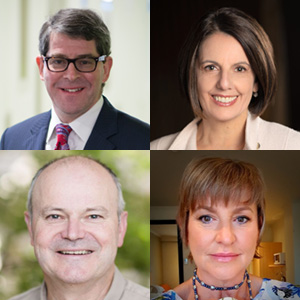What do you think?
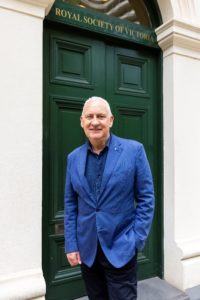
In recent months I have attended a number of workshops at the Victorian Chamber of Commerce and Industry’s Victoria Summit. Unfortunately, the outcomes of the Summit process so far fail to address the two, global existential crises that all human societies currently face:
- Anthropogenic global heating and measures to rapidly mitigate it (‘Net zero’ by 2050? 2030?)
- The collapse of nature and the need to reinvest in biodiversity to fundamentally support our economic system.
These were the two focal points and two of the highest-level outcomes of the UNFCCC COP 26, held in Glasgow, Scotland, and the Convention on Biological Diversity, COP 15, held in Kunming, China, over the course of October and November this year.[1][2]
These outcomes call for transformational change; a system-wide reorganisation, not ‘business as usual with a few tweaks.’ We cannot expect to achieve the necessary results for the future of all Victorians with incremental approaches to change; yet transformation change requires a concerted effort by almost everyone in our society, which means a comprehensive, shared understanding of the catalysts for change and a roadmap for collective achievement.
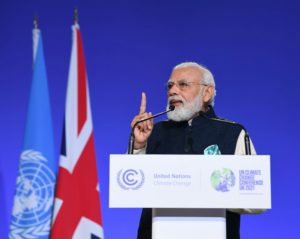
Accordingly, the Royal Society’s Council seeks to sharpen the RSV’s role in promoting science-based decision-making in Victoria with the wider community, government and the corporate sector. To this end, we want to ensure our membership has an opportunity to contribute to the establishment of an agreed position on important issues and support new programs designed to engage and empower Victorian communities in plotting their course for the future.
We are now considering a range of topics and a robust process for developing RSV ‘Position Papers,’ designed to provide a consensus view on current issues that the Society’s membership can champion and will position our organisation as a science-based critical resource, available to the community, government and industry sectors alike.
The themes and issues under consideration are derived from a recent focus group meeting and are canvassed below. We would welcome your thoughts and contributions on these; an email will be with RSV members this week from our CEO directing you to a short survey instrument designed to help us collate the many responses we hope to receive, but I also welcome “Letters to the President” for publication in future editions of Science Victoria – you can send these through to me at [email protected]. While there is no assurance that we will publish everything I receive, and we reserve the right to edit letters for brevity, we’ll certainly publish anything that stimulates and progresses a reasoned, fruitful discussion.
Biodiversity
 Long ‘out of sight, out of mind’ in Australia’s policy response, attention has finally been paid to the collapse of nature at both the Biological Diversity COP15 and the climate COP26 in Glasgow.
Long ‘out of sight, out of mind’ in Australia’s policy response, attention has finally been paid to the collapse of nature at both the Biological Diversity COP15 and the climate COP26 in Glasgow.
The International Business Times reported in Biodiversity Loss: The Overlooked Crisis[3] that the Glasgow Leaders’ Declaration on Forests and Land Use, announced within 48 hours of the conference getting underway, came as both a welcome surprise and a great relief. The commitment of 105 signatories is to work together to end and reverse deforestation by 2030.
The Society is considering positions on:
- the potential to recover Victoria’s biological diversity – what will it take?
- the establishment of a new Victorian National Park in the Central Highlands[4] [5]
- the need for an independent, specialist biodiversity agency
- control of invasive species
Population
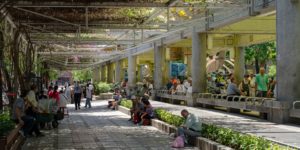 At the inauguration of new RSV Fellows earlier this year there was discussion about whether or not a valuable exercise might be to ask our Fellows to tackle a ‘wicked problem’, each from their own scientific perspective. A topic that was immediately proposed was population.
At the inauguration of new RSV Fellows earlier this year there was discussion about whether or not a valuable exercise might be to ask our Fellows to tackle a ‘wicked problem’, each from their own scientific perspective. A topic that was immediately proposed was population.
The Society is considering questions such as:
- What makes a liveable city?
- How much can Victoria grow; how big can we get?
- What will it take to make Victoria’ supply chains sustainable and secure?
Climate impacts and technological fixes
 Our capacity to adapt to the impacts of climate change – sea level rise, storms and coastal erosion, flooding, and bushfire – will continue to be tested in the years to come. We must continue to mitigate the worst effects while preparing for the change that is ‘locked in.’
Our capacity to adapt to the impacts of climate change – sea level rise, storms and coastal erosion, flooding, and bushfire – will continue to be tested in the years to come. We must continue to mitigate the worst effects while preparing for the change that is ‘locked in.’
Carbon Capture and Storage (CCS) is being included as a new technology for reducing atmospheric carbon dioxide to mitigate anthropogenic global warming. It is a critical policy component now Australia’s ‘net zero’ by 2050 target.
The Society is considering questions such as:
- Does Carbon Capture and Storage work?
- How do we protect ourselves from bushfire smoke inundation?[6]
- Fire: control burning; ‘fuel breaks[7]’and the appropriate use of indigenous fire knowledge.
Other issues for consideration:
There are other critical issues for us to consider about the real value of science to our community. For example:
- The pandemic has made stark the “science vs belief” dichotomy in many quarters, which can be informed by the professional practice of clear science communication and its effective utility by governments.
- The value of investment in research was recently discussed in The Conversation[8] and refers to the CSIRO’s working paper on investment in innovation[9] as key contributor to Australia’s economic growth and prosperity.
- It will also be important to consider contributions to Victorian Government engagement programs and discussions on subjects from the Gas Substitution Roadmap[10] to Victoria’s Marine Pest Policy[11] or sustainable water strategies[12].
The scientific and critical thinking capability of our membership, paired with the urgency of providing Victorian communities with a renewed confidence in science-based decision-making, provides a real opportunity for the Royal Society of Victoria to utilise its independence and build a strong reputation by fulfilling its foundational objective in promoting and advancing science.
[2] https://www.cbd.int/conferences/2021-2022
[3] https://www.ibtimes.sg/biodiversity-loss-overlooked-crisis-61327
[4] https://www.patagonia.com.au/products/the-great-forest-david-lindenmayer-bkub01-zzz
[5] https://rsv.org.au/action-needed-to-ensure-the-recovery-of-the-leadbeaters-possum/
[6] https://www.ecowatch.com/wildfire-smoke-covid-deaths-2654682194.html
[7] https://engage.vic.gov.au/strategic-fuel-breaks
[8] https://theconversation.com/every-dollar-invested-in-research-and-development-creates-3-50-in-benefits-for-australia-says-new-csiro-analysis-172300
[9] https://www.csiro.au/work-with-us/services/consultancy-strategic-advice-services/CSIRO-futures/Futures-reports/Quantifying-Australias-returns-to-innovation
[10] https://www.premier.vic.gov.au/have-your-say-victorias-gas-substitution-roadmap
[11] https://engage.vic.gov.au/victoria-invasive-marine-pests
[12] https://engage.vic.gov.au/central-and-gippsland-region-sustainable-water-strategy


